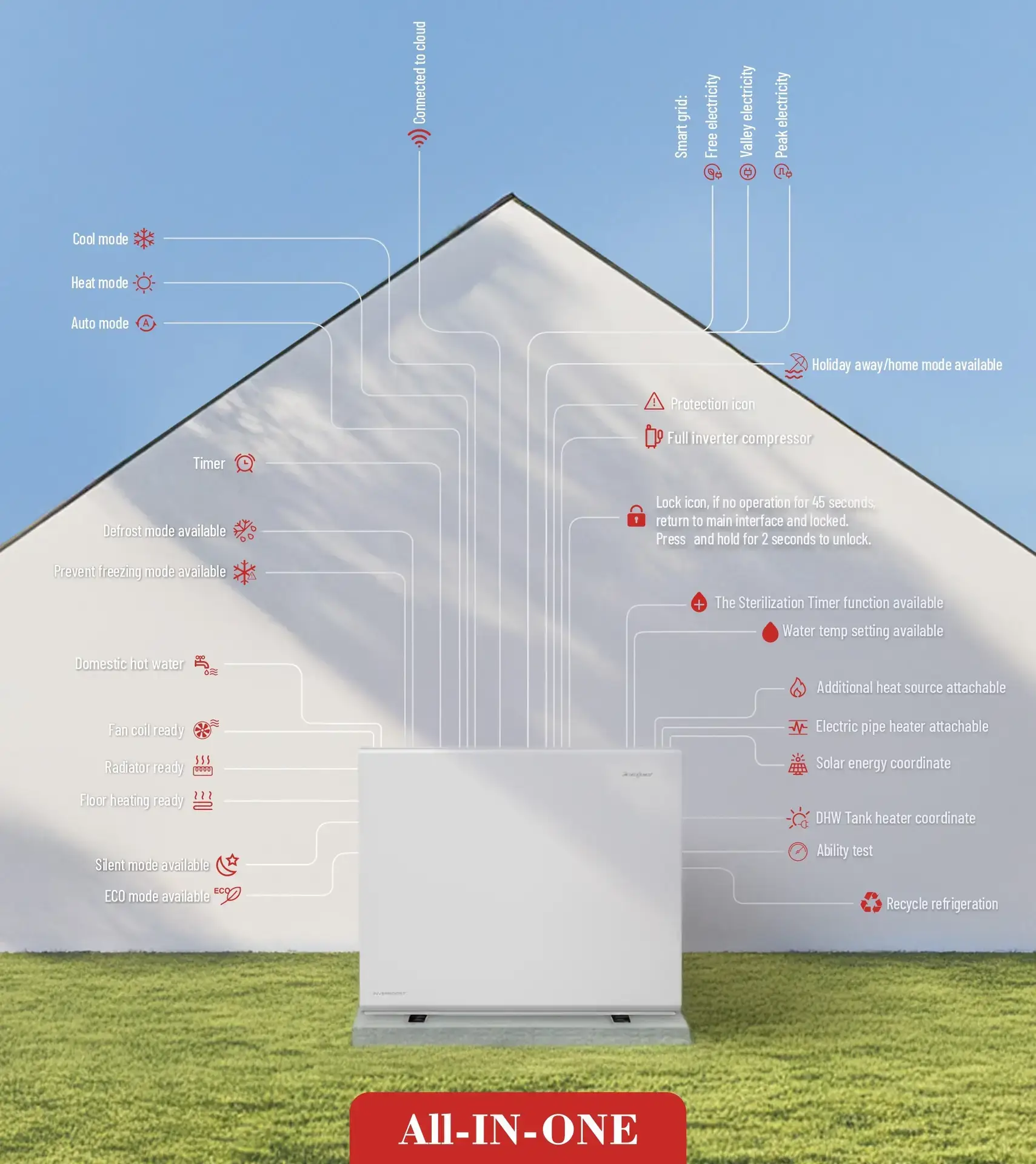The most efficient heat pump depends on many factors, including the type of building, energy needs, climate conditions, and initial budget.
Here are some of the most important aspects to consider when deciding which heat pumps are the most efficient:
1. Geothermal heat pumps
- Efficiency: Have the highest coefficient of performance (COP), often exceeding 5 , as they use a stable ground temperature source, around +5C.
- Advantages:
- Works effectively in all weather conditions.
- Long service life (often 20-25 years).
- You don’t have a wild block that’s noisy.
- Disadvantages:
- High installation costs due to the installation of ground boreholes or collectors.
- A suitable location is needed for the well installation (large plots).
2. Air-to-Water heat pumps
- Efficiency: COP depends on the outdoor temperature – at +7°C, it can reach 4–5 , but gradually drops below -15°C / -25°C.
- Advantages:
- Much cheaper to install than geothermal pumps, roughly two and even four times.
- It can cool and heat rooms, and heat boiler water.
- Suitable for many households and industrial facilities, easily integrated with existing heating systems.
- There are many types of air conditioners: Split, Monoblock, VRF.
- Disadvantages:
- Efficiency decreases in extreme winter conditions.
- Can be a little noisy due to the fan when it’s very cold.
3. Air-to-Air heat pumps
- Efficiency: COP also depends on the outdoor temperature – often the efficiency reaches 4-5 , but decreases at low temperatures, -15°C / -25°C.
- Advantages:
- Perfect for quick heating or cooling of rooms.
- Cheap and easy to install.
- Requires little maintenance.
- Suitable for heating or cooling large industrial facilities.
- Disadvantages:
- Cannot heat water heater or boiler.
There is no single answer to which heat pumps are the most efficient.
Each time, it must be selected according to the needs of the residents, the house, etc.
If you are interested in specific models or manufacturers, we can provide comparisons!

